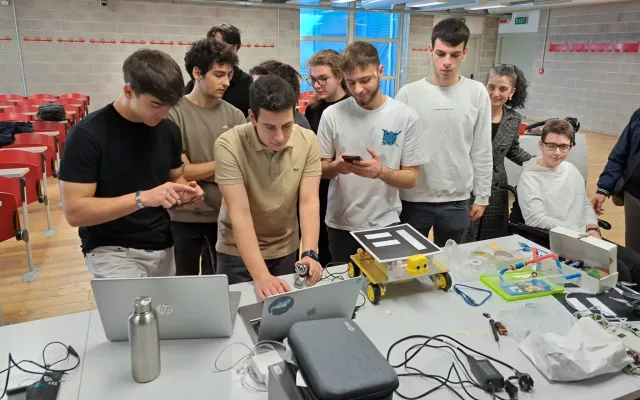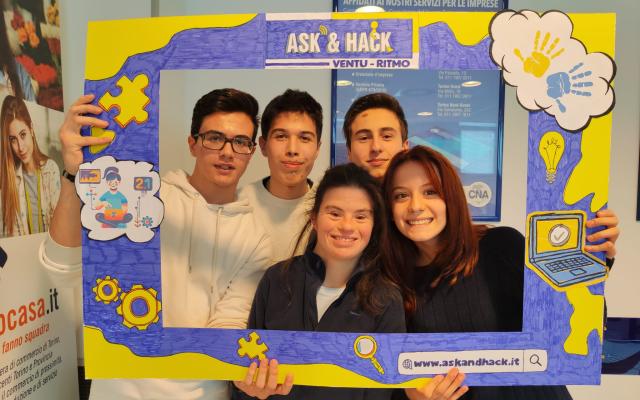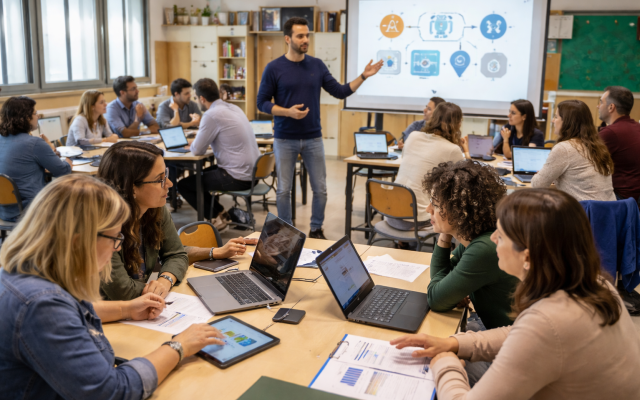Job Digital Lab with ING Italia: Silvia Colombo describes how the project was conceived
If one of the major global financial groups decides to invest in an inclusive economy, who should it turn to? It is possible to create value as a bank, as an employer, and in society?
“The Group asked us to remove the barriers to those wishing to enter the working world by developing stronger and solider digital skills. And this is what we do at ING Italia,” explains Silvia Colombo, External Communications Public Affairs and CSR Manager at ING Italia. It is thanks to her energy and determination that Project Job Digital Lab – Training to Get Back in Action, now in its second edition, was conceived.
With the help of Nicoletta Vulpetti, a true lover of identity stories, the second edition of Job Digital Lab, the educational programme developed with ING Italia, presents the stories of the protagonists of personal and community change.
I always accept a challenge. Last year, the group launched one: create a more inclusive economy by 2025.
This is how Job Digital Lab was conceived. I understood that we could do something for the local community, by doing what we know how to do best: be digital. I picked up the challenge and we are now in its second year.
The Group asked us to remove the barriers to those wishing to enter the working world by developing stronger and solider digital skills. And this is what we do at ING Italia.
When we started out, in 2001, on-line banks, as we were called at the time – they still didn’t exist – the project immediately fascinated me. I remember my first interview at ING many years ago. I worked for a large editorial group, and we had just inaugurated the office designed by Renzo Piano.
I answered a job ad and drove out with my black Polo and a map to Via Attendolo (Southern Milan) for the interview. There was nothing there, except for these new office buildings, studded in a desolate land, in which I had to find the right building.
As I made my way amongst the boxes of a recent start-up, I thought “I’ll never come to work here.” Then, after the interview, the decision was made. I wanted to be part of this project. They were creating something new, with an energy and enthusiasm that would change the sector. And I wanted to be there, where they were developing the future of banking.
Digital tools have also affected other aspects of my life, not just my job. I live about thirty kilometres outside of Milan, so being able to take advantage of a hybrid work mode is fundamental, for example, to blend my private and professional lives. At work, we call it the super flexible model. The individual decides when and how to work at home or in the office to meet with work groups.
What’s the reason that I get up every morning? To do my best every single day.
This is also the reason for which, last year, while we were in lockdown and had less distractions, I decided to start studying again. I enrolled in the single courses at the Università Statale. I started with the Philosophy of Science and this year I’m studying Moral Philosophy. Once again, digital tools simplified my life and opened up new doors. I would never have been able to attend these courses if distance learning had not been activated and recorded lessons made available on-line.
I’m enjoying this new adventure. It opens up my mind and allows me to reflect on the dynamics of our frenetic lifestyles that seem clogged up … they appear to be thoughts from another age. On the contrary, they are very apropos and are more deeply related to today’s world than one might imagine. They help me to look beyond appearances and view the structural elements.”




